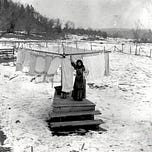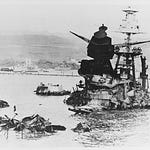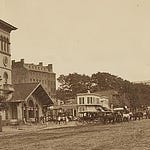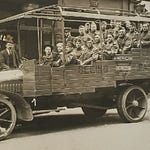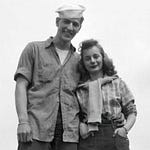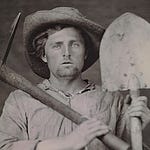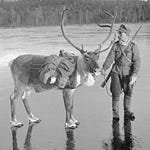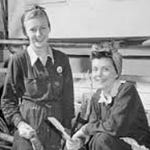It is March 1915.
And, American newspaper reporter Phil Rader has written a personal account of the Christmas Truce of 1914 for United Press International.
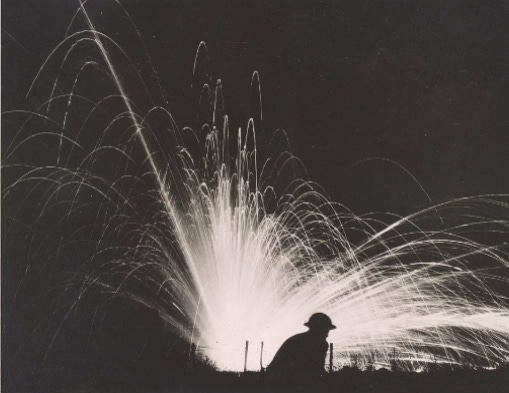
Rader was one of a hundred Americans who had enlisted in the French Foreign Legion in 1914.
On Christmas Day 1914, he was in the trenches of Northern France.
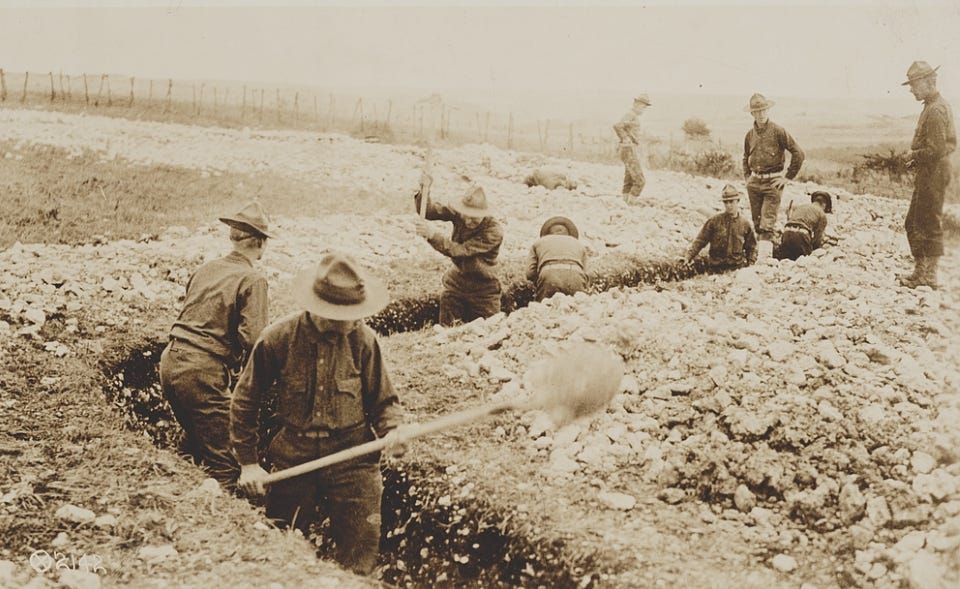
“We had been in the trenches for twenty days facing that strip of land, forty-five feet wide, between our trenches and that of the Germans,
that terrible No-man’s land, dotted with dead bodies, crisscrossed by tangled masses of barbed wire.
And the sunshine of the bright Christmas morning fell on it as brightly as if it were a lover’s lane or the aisle in some grand cathedral.

I don’t know how the truce began in other trenches, but in our hole, Nadeem, a Turk, began it —
He was an enthusiastic boy, always childishly happy,
and when we noticed, at the regular morning shooting hour, that the German trenches were silent, Nadeem began to joke about it.
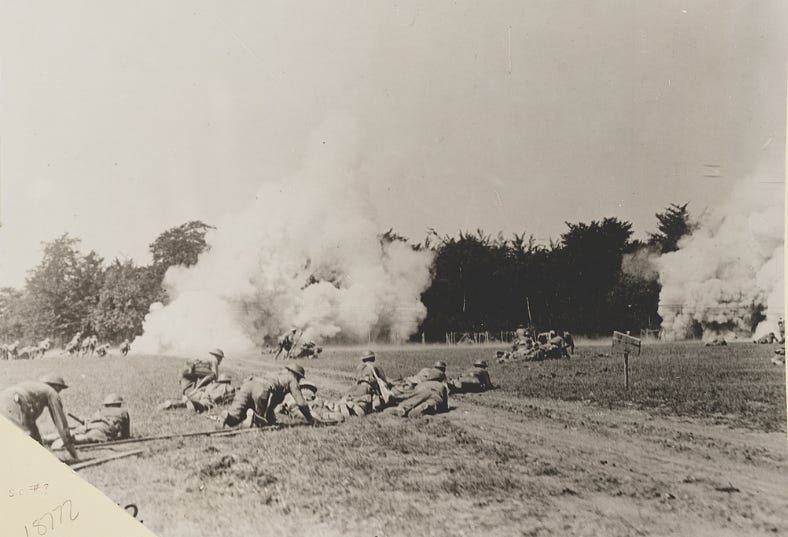
He drew a target on a board, fastened it on a pole and stuck it above the trench, shouting to the Germans ‘See how well you can shoot.’
Within a minute the target had been bulls-eyed.
Nadeem pulled it down, pasted little white bits of paper where shots had struck, and held it up again so that the Germans could see their score.
In doing so, Nadeem’s head appeared above the trench, and we heard him talking across No-man’s land.
Thoughtlessly, I raised my head, too.
Other men did the same.
We saw hundreds of German heads appearing.
Shouts filled the air.
What miracle had happened?
Men laughed and cheered.

A ponderous German with a happy smile that exposed rows of glittering white teeth climbed out of the trench and shouted:
‘Lieutenant Schroder presents his compliments to your lieutenant, and desires to know if he will select four men and come to the middle of the neutral territory, to arrange for a truce for burying the dead.’
Our lieutenant agreed in an instant.
The truce was arranged.
There was to be no more firing for one hour and the men from both sides were to come and bury their dead.

The soldiers flocked from both trenches.
They rushed at each other and shook hands.
‘I want to have your photographs,’ said the German lieutenant to our party.
He sent back for his camera and we enemies stood with our arms about each other’s shoulders in horseshoe formation while the lieutenant snapped his camera.

‘If I don’t have a chance to send you the prints before the war is over,’ he said, ‘I shall see that you get them afterward.’ And he took our addresses.
At last, the bodies were buried.
The hour of truce had passed.

But the men did not go back to the trenches.
In groups all about that once terrible strip of no-man’s land the Germans and the legionnaires sat talking or playing cards, exchanging tobacco and cigarettes and joking and laughing.

‘Don’t blame us,’ was the burden of the Germans’ talk. ‘It isn’t our fault that we are fighting. We don’t know what it’s all about. We have wives and children and we’re just the same kind of men that you are. We’re damned fools and so is everybody who is fighting.’
And our talk ran the same.
It wasn’t until the sun began to go down that the groups broke up.

After supper we heard a sudden blast of music that thrilled us.
A little German band had crept into the German trenches and announced itself with a grand chord.
Then came the unexpected strains of the ‘Marseillaise.’
The Frenchmen went almost frantic with delight.
Then came our turn at delight when the band played ‘It’s a Long, Long Way to Tipperary.’
George Ullard, our Negro cook, who came from Galveston, got out a mouth organ and almost burst his lungs playing ‘Die Wacht am Rhein.’
The silence in the German trenches was a thousand times more eloquent than the blast of cheers that came when George had finished.

There was no shooting all night until about 6 in the morning when the sound of rifles was heard far down the trench.
But Nadeem, who had been the first to feel the holiday spirit, failed to sense the grimness of war that had fallen over the trenches during the night.
He jumped out of the trench and began waving his hands again.

Then John Street, an American who had been an evangelist in St. Louis, jumped out with him, and began to shout a morning greeting to a German he had made friends with the day before.
There was a sudden rattle of rifle fire.
And Street fell dead with a bullet through his head.
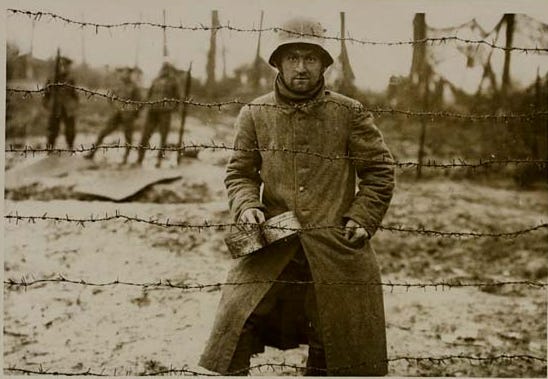
The sun was shining down again on a world gone mad.”
******************************
I’ll see you tomorrow.
— Brenda
Rader’s essay has been edited for brevity.


